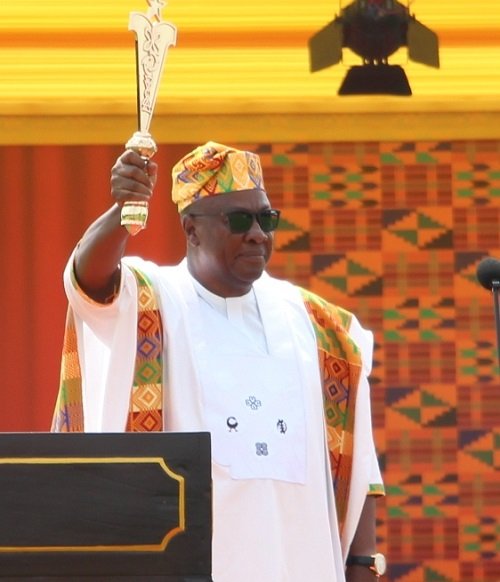ARTICLE AD
The Speaker of Parliament, Alban Sumana Kingsford Bagbin, has described as “contemptuous of Parliament” for the decision by the Office of the President not to receive the passed Proper Human Rights and Family Values Bill, 2021.
In the view of the Speaker, the refusal to receive the Bill not only deviates from established democratic practices, but also undermined the “spirit of cooperative governance and mutual respect for the arms of government.”
The Speaker’s concern comes on the back of a letter signed by the Secretary to the President, Nana Asante Bediatuo, and addressed to the Clerk of Parliament, Cyril Nsiah, cautioning him to “cease and desist” from transmitting the Bill to the President for his assent; citing two interlocutory injunction applications filed at the Supreme Court against the Bill.
But the Speaker held that interpreting the “mere” filling of an injunction application as though same had been granted and on the basis of that halt the legislative process, runs the risk of unduly fettering the work of Parliament.
Such a stance, the Speaker said if maintained, would set a bad precedent and could enable parties to strategically file injunction applications, not necessarily on the strength of their legal position, but as a tactic to delay or complicate proceedings of Parliament.
“This approach risks transforming the legal system into a tool for political maneuvering rather than a mechanism for justice, effectively crippling Parliament’s ability to function and bringing legislative processes to a standstill,” the Speaker sasid.
He further argued that the act of transmission forms part of the procedural progression of a Bill within the structured framework established by the 1992 Constitution in Article 106 and could not be stopped by any legal process.
The Speaker could not fathom why the President would refuse receipt of the Bill when the Constitution had elaborate provisions for judicial review in Articles 2(1) and 130 for the Supreme Court to scrutinise the constitutionality or otherwise of any Act of Parliament.
“Therefore, the refusal of the President to even accept the Bill for consideration falls outside the legal bounds established by our constitutional framework. It is incumbent upon the President to accept the bill and take the necessary action within the prescribed constitutional limits, whether that action is assent, refusal, or referral to the Council of State for advice,” the Speaker stated.
There must be a steadfast rejection of any attempts to unduly fetter or hinder the work of Parliament, the Speaker stressed, adding that Parliament operates as a crucial part of the country’s democratic architecture, and embodies the will and voice of the people.
“Any efforts to obstruct its work disrespects this fundamental institution and threatens the principles of governance by consent and representation,” the Speaker outlined.
In this regard, the Speaker called on the House to stand up to what he considered an affront to the authority of Parliament by the President.
“Hon. Members, it is incumbent on this House to stand united in its response to this affront to the legislative authority vested in it by the Constitution and the people we serve.
“We must articulate a collective voice that unequivocally condemns the disregard for our constitutional structures and reaffirms our commitment to upholding the rule of law,” he rallied the MPs.
BY JULIUS YAO PETETS

 9 months ago
62
9 months ago
62 

